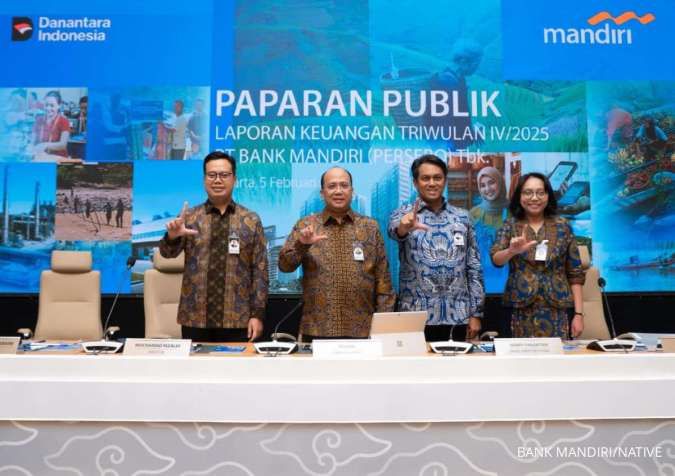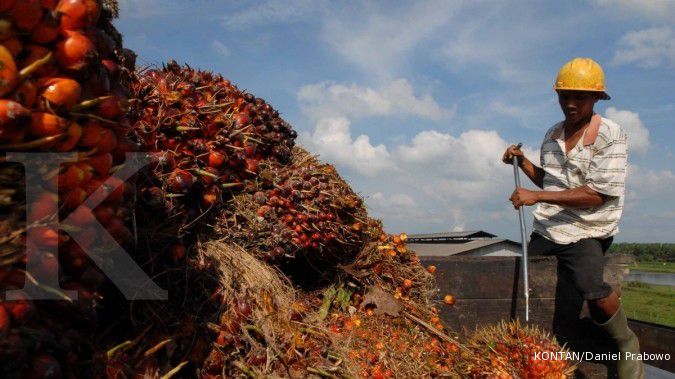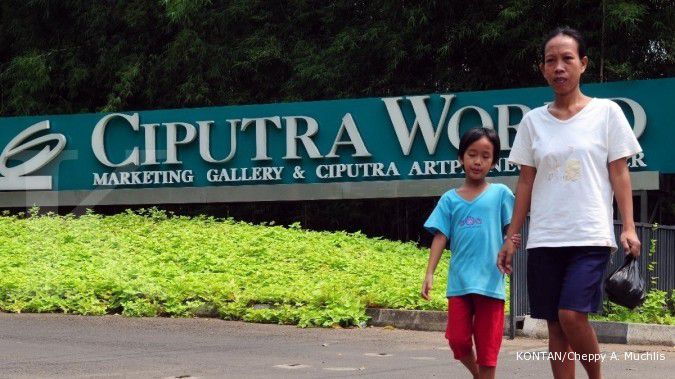DENPASAR. In a rare public display of emotion, Governor Made Mangku Pastika eventually admitted on Sunday that his relationship with his deputy governor, Anak Agung Puspayoga, was less rosy than the one he had previously projected to the media. The announcement means that the two popular figures may head into direct, fierce competition in the upcoming gubernatorial election, which is slated to be held in May 2013.“I must admit that I had covered [this fissure] up for quite a long time. Even in late October I still insisted that everything was fine between me and the deputy,” Pastika said, nodding in affirmation at I Made Arjaya, the head of Bali Legislative Council’s Commission I, who sat next to the governor.It was Arjaya who, in the council’s plenary session late October, launched a direct question at Pastika and Puspayoga about the state of their personal and professional relationship. At that time, Puspayoga answered that he had a different style of leadership than that of the governor.“But I must now speak openly and reveal everything because the recent development has really disturbed me,” Pastika said before scores of scholars and community leaders attending a seminar on the provincial administration’s top development programs.Among the attendants were Jro Gede Suwena Putus Upadesha, the chairman of the influential Grand Council of Customary Villages (MUDP), an umbrella organization for nearly 1,500 customary villages across the island, Parisadha Hindu Council Bali chapter head IGN Sudiana, moderate Hindu thinker Raka Santeri, and the chief editors of several local dailies.The less than harmonious relationship between the two figures, who in the 2008 gubernatorial election were endorsed by the Indonesian Democratic Party of Struggle (PDI-P) and swept into power with more than 55 percent of the votes, had become behind-the-scenes chatter since late last year, particularly among journalists and a circle of scholars close to the governor. The general public received a hint of the fractured relationship when Bali Post, the island’s biggest daily newspaper that is committed to an ongoing campaign to rout Pastika, began to publish stories that cast Puspayoga in a positive light.Pastika, who didn’t mention Puspayoga by name referring to him only as Pak Wagub (deputy governor) throughout the seminar, stated that he made a public acknowledgement about the crack because he believed Puspayoga had made an improper political maneuver.“I am deeply disappointed by what has taken place, particularly on the allocated funds for mass cremations.” The mass cremation caseSources close to Pastika revealed that in late 2011, Puspayoga had phoned the governor’s office’s head of public welfare division and asked him to draft an allocation of funds from the provincial budget to finance a series of mass cremations in 2012. Despite the fact that the deputy governor did not submit any written documents or proposals from the communities that would carry out the cremations and that the submission period for such proposals had ended three months earlier, the official dutifully carried out the verbal order. Puspayoga asked for Rp 500 million (US$51,800) for MUDP and Rp 1 billion for mass cremations in Jembrana, Badung, Gianyar and Karangasem.Pastika didn’t know anything about the allocation until several days ago. The mass cremation in Jembrana is to take place on Nov. 16 and Pastika’s signature was needed to secure the disbursement of the funds. “The regulations strictly forbid the regional administration from disbursing funds for such religious rituals. If I sign the disbursement letter, I literally breach the law. If I don’t sign it, the people would be told that their governor denies them a free-of-charge mass cremation,” Pastika said, adding that Puspayoga had approached various communities on the island and offered to fund their religious rituals.“Using religious rituals, exploiting the souls of the deceased by offering their families a free-of-charge cremation to improve your electability is a new low in the landscape of this island’s politics.”Puspayoga organized a similar ritual in September 2011 using provincial funds. The administration was reprimanded by the Supreme Audit Agency (BPK) for financing the ritual.Pastika promised that he would donate Rp 50 million from his own pocket to each of the communities organizing the rituals. But he stressed that the provincial administration would not disburse the Rp 1 billion. The Jakarta Post“The government could provide assistance, but the cremation ceremony is the responsibility of the deceased’s family.”
Internal rift rocks Bali administration
DENPASAR. In a rare public display of emotion, Governor Made Mangku Pastika eventually admitted on Sunday that his relationship with his deputy governor, Anak Agung Puspayoga, was less rosy than the one he had previously projected to the media. The announcement means that the two popular figures may head into direct, fierce competition in the upcoming gubernatorial election, which is slated to be held in May 2013.“I must admit that I had covered [this fissure] up for quite a long time. Even in late October I still insisted that everything was fine between me and the deputy,” Pastika said, nodding in affirmation at I Made Arjaya, the head of Bali Legislative Council’s Commission I, who sat next to the governor.It was Arjaya who, in the council’s plenary session late October, launched a direct question at Pastika and Puspayoga about the state of their personal and professional relationship. At that time, Puspayoga answered that he had a different style of leadership than that of the governor.“But I must now speak openly and reveal everything because the recent development has really disturbed me,” Pastika said before scores of scholars and community leaders attending a seminar on the provincial administration’s top development programs.Among the attendants were Jro Gede Suwena Putus Upadesha, the chairman of the influential Grand Council of Customary Villages (MUDP), an umbrella organization for nearly 1,500 customary villages across the island, Parisadha Hindu Council Bali chapter head IGN Sudiana, moderate Hindu thinker Raka Santeri, and the chief editors of several local dailies.The less than harmonious relationship between the two figures, who in the 2008 gubernatorial election were endorsed by the Indonesian Democratic Party of Struggle (PDI-P) and swept into power with more than 55 percent of the votes, had become behind-the-scenes chatter since late last year, particularly among journalists and a circle of scholars close to the governor. The general public received a hint of the fractured relationship when Bali Post, the island’s biggest daily newspaper that is committed to an ongoing campaign to rout Pastika, began to publish stories that cast Puspayoga in a positive light.Pastika, who didn’t mention Puspayoga by name referring to him only as Pak Wagub (deputy governor) throughout the seminar, stated that he made a public acknowledgement about the crack because he believed Puspayoga had made an improper political maneuver.“I am deeply disappointed by what has taken place, particularly on the allocated funds for mass cremations.” The mass cremation caseSources close to Pastika revealed that in late 2011, Puspayoga had phoned the governor’s office’s head of public welfare division and asked him to draft an allocation of funds from the provincial budget to finance a series of mass cremations in 2012. Despite the fact that the deputy governor did not submit any written documents or proposals from the communities that would carry out the cremations and that the submission period for such proposals had ended three months earlier, the official dutifully carried out the verbal order. Puspayoga asked for Rp 500 million (US$51,800) for MUDP and Rp 1 billion for mass cremations in Jembrana, Badung, Gianyar and Karangasem.Pastika didn’t know anything about the allocation until several days ago. The mass cremation in Jembrana is to take place on Nov. 16 and Pastika’s signature was needed to secure the disbursement of the funds. “The regulations strictly forbid the regional administration from disbursing funds for such religious rituals. If I sign the disbursement letter, I literally breach the law. If I don’t sign it, the people would be told that their governor denies them a free-of-charge mass cremation,” Pastika said, adding that Puspayoga had approached various communities on the island and offered to fund their religious rituals.“Using religious rituals, exploiting the souls of the deceased by offering their families a free-of-charge cremation to improve your electability is a new low in the landscape of this island’s politics.”Puspayoga organized a similar ritual in September 2011 using provincial funds. The administration was reprimanded by the Supreme Audit Agency (BPK) for financing the ritual.Pastika promised that he would donate Rp 50 million from his own pocket to each of the communities organizing the rituals. But he stressed that the provincial administration would not disburse the Rp 1 billion. The Jakarta Post“The government could provide assistance, but the cremation ceremony is the responsibility of the deceased’s family.”





